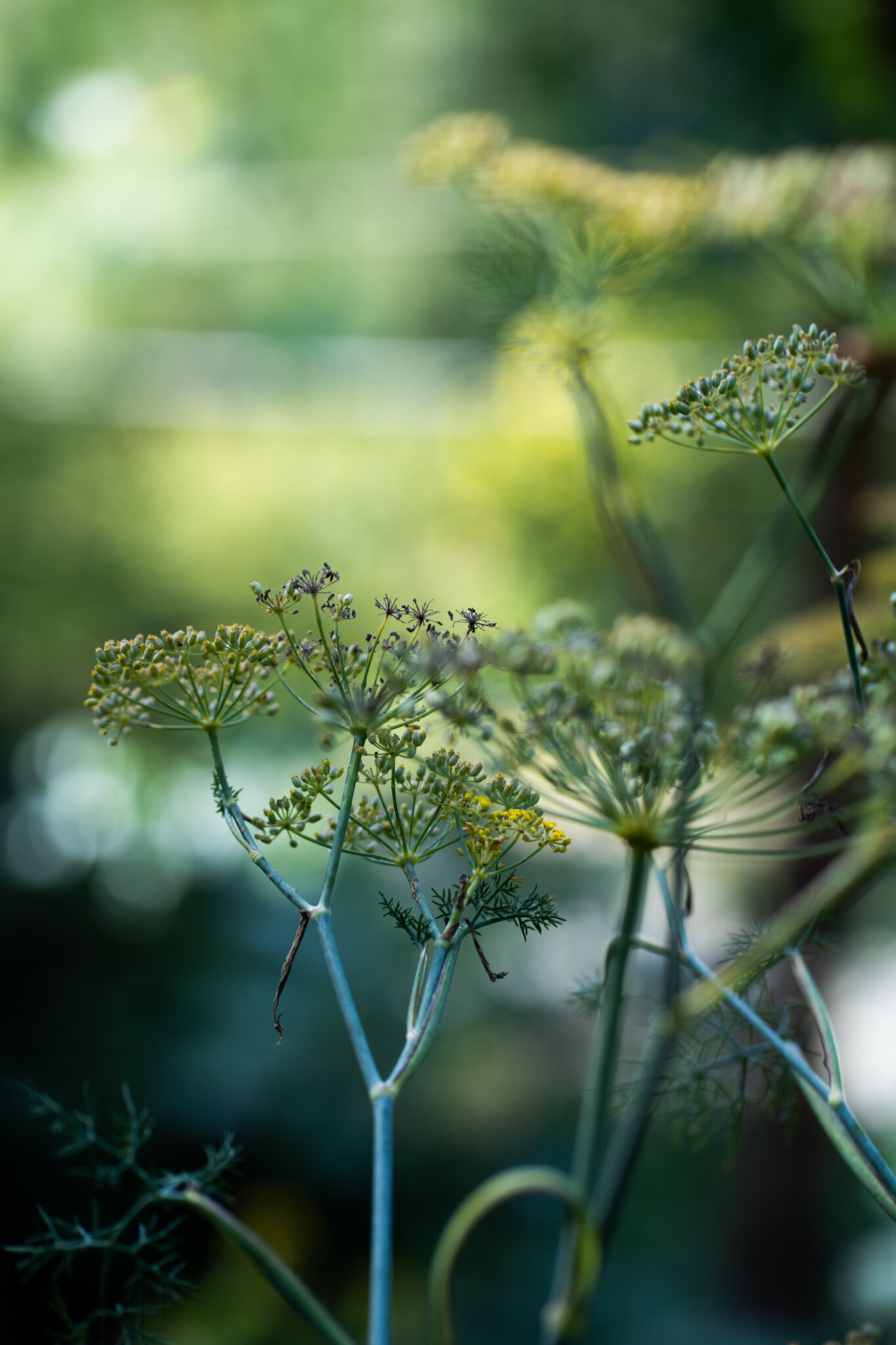Food for Thought: Saving Seeds with Marsha Goldberg
Food for Thought is an ongoing series of Q&A interviews with knowledgeable locals who share their wisdom to promote community food security.
Images by Brette Little
Gardening is an essential part of community food security, and the success of your garden starts with the humble but mighty seed. Local seeds proven to thrive in this ecosystem will yield the best results, and luckily Salt Spring is home to seed farmer Marsha Goldberg who is passionate about sharing her expertise with gardeners.
Marsha and Jane Schweitzer run Eagleridge Seeds, a seed farm and online shop supplying heirloom seeds. We visited Marsha for a tour of her bountiful farm during harvest time and she kindly shared her seed-saving knowledge with us.
Q+A with Marsha Goldberg
Tell us a little about you; what brought you to SSI?
We came to Salt Spring on a holiday in 1993. As practicing horticulturists the garden magic here captured us. We bought our farm 6 months later! Our farm name is Eagleridge Greenhouse Gardens. In 2010 we started the retail branch of our seed farm, Eagleridge Seeds.
How did you become interested in saving and farming seeds?
My first job here as a farm manager got me interested in heirloom vegetables. The taste, hardiness and diversity proved very quickly to be the path for us to travel. These varieties are not hybrids so it is possible to save the seeds. After my first lettuce seed I was hooked!
“You won't be disappointed when you use the age old practice of saving your best plants for seed.
”
-Marsha Goldberg
How did Eagleridge Seeds begin, and what does it look like today?
We were wholesalers first supplying greenhouses and other seed companies while we built our inventory to include some of the most endangered varieties. Today we are preparing to launch a new venture: a Living Seed Bank. A regular seed bank is about storage, we are growing varieties out on a rotating basis to ensure they can adapt to a rapidly changing environment. Our specialty is preserving the most endangered seeds we have collected from around the world.
Marsha’s guide to saving local seeds
Local seeds are gaining in popularity; the term to describe this is bioregionalism. Those plants that are grown here thrive here as they adapt and evolve based on our weather patterns, soil conditions, humidity and water.
We have ideal conditions to save seeds here, one of the best places on the planet. With mild winters we can keep overwintering plants in the ground such as beets and carrots that need the second season to produce seed. The summers are mostly dry. Humidity is a huge problem when you are trying to produce good clean seed as too much moisture creates mold. Lettuce and beans are very susceptible to humidity.
There are a number of good books available to get you started on seed saving, but the best way is to learn by doing! Here are the basics that we use to train local gardeners:
Start with some easy vegetables like beans or peas. As they dry down, collect the pods, hang to dry further and then clean off the chaff (protective casing/husk).
Lettuce is self-fertile so let them bolt, enjoy their beautiful flowers and when the fluffy seed pods appear on the tops, collect the seed in a bucket.
Varieties that can be cross-pollinated by bees like onions, cabbage, and squash are trickier. The bees land all over, collecting and transferring pollen. But there is a simple response to this: only keep one of each plant for seed!
Seed storage is crucial to keeping your seeds safe. Once they are super dry you can use any number of containers at hand such as glass jars or recycled vitamin containers. Seal them well, label them with a date and place in a cool, dark and dry spot until you need them again.
I encourage you to keep an eye out for your best thriving specimens, flag them and let them go to seed. You won't be disappointed when you use the age old practice of saving your best plants for seed. It is a time-honoured tradition practiced by generations of growers the world over, whose lives depended on their ability to do so.










